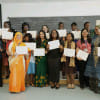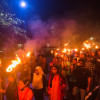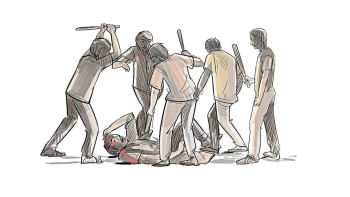The Indian visa debacle and the many dreams thwarted

The past three months have been a tremendously difficult time for our country and there have been far-reaching repercussions for people from all walks of life. The revolution was a necessity. But it's also natural that, due to a domino effect, there have been certain negative impacts on many people's lives. This has been the case for many prospective Bangladeshi international students travelling to different countries.
For students travelling to countries like the US, the problem was the closure of the country's embassy itself which resulted in all student visa applications getting delayed. For others, like students travelling to different European countries like Finland, Romania, and the Czech Republic, the situation was vastly different. These countries don't have an embassy in Bangladesh. The students have to travel to a third country with an operational embassy – India for most cases – to submit their residence permit or visa application and to verify their identity.
Since the recent political instability, however, the Indian Visa Application Centre (IVAC) has been closed. For a while, they halted their operations but attempted to continue operations at a limited scale. The process, however, was disrupted following protests at the centres. At the time of writing this article, no Indian visas are being issued for Bangladeshis except for emergency and medical needs. The initial stopping of operations meant that any student who applied for a visa to travel to India for facing an embassy appointment couldn't receive their visa on time, had their visa rejected, or had their passport returned to them without having their visa processed at all. All of this prevented them from travelling to their universities for the start of their studies.
The added hurdle is that it is really hard to get an appointment at the embassies of these countries in India. They usually serve the citizens of multiple neighbouring countries like Bangladesh, Sri Lanka, and the Maldives as well as their own citizens. Some diplomatic missions, like the Finnish mission in New Delhi, use VFS Global, a visa and passport outsourcing company, to aid in this process.
While the use of VFS makes the process relatively smooth, the waiting lists for the appointment slots are still extremely long. When slots do open up, the number of available dates is excruciatingly low. Thus, for students who missed their embassy appointment date due to problems with their Indian visa, acquiring another appointment at a later date becomes difficult. Even if they did manage to get another appointment, there would still be no guarantee of obtaining an Indian visa on time.
As a student who was supposed to arrive at Aalto University in Finland for the start of my Bachelor's degree in late August, I was thrown into this very turmoil. It was a hauntingly terrifying time: my life and future suddenly looked incredibly uncertain. I didn't know when the situation was going to normalise or when I could start my new academic and social life. I spent hours poring over the IVAC website, maddeningly trying to contact any person with any semblance of connection to the visa centre – hoping that I could get to Finland on time. Moreover, there appeared to be no alternative to travelling to India which I found out after contacting Finnish immigration and the Finnish Ministry for Foreign Affairs.
For 19-year-old Tafhimul Hasan, the situation proved to be doubly upsetting. He said, "I got admission offers from two European universities: one for Computer Science at Charles University in Czechia and another for Quantum Technology at Aalto University in Finland. If things went according to plan, I would have arrived at Aalto on August 26 or at Charles University on September 26."
Due to the absence of both Finnish and Czech embassies in Bangladesh, he needed to travel to New Delhi to apply for a residence permit. The Indian visa process, however, turned out to be a particularly infuriating obstacle.
"My father and I applied for Indian tourist visas in early May. My father got his visa, but I didn't. I applied again for a double-entry visa twice afterwards, but it was rejected both times. Despite submitting all the required documents – like my admission offer, scholarship letter, VFS appointment, and bank statements – I wasn't given any clear reason for the refusals," he added. "With the situation in Bangladesh becoming unstable, I applied for a general tourist visa on July 28, but on August 26, I got my passport back without a visa."
After having gone through this entire horrific experience, I feel somewhat angered and confused. So many students from Bangladesh travel to these European countries for their higher studies every year. Why are there no embassies processing the paperwork here? Why could no other provisions be made for Bangladeshi students in different countries like Nepal or Thailand where the arrival process is relatively simple, and which have the relevant embassies for processing our documents? Why didn't the Foreign Ministry of Bangladesh step in so students didn't have to suffer so much just to obtain the proper documentation to start their higher education?
"At first, I was stressed and anxious about everything, but after four months of dealing with this, I'm just disappointed now. I don't know who to blame or what to do. I just hope the new interim government will take responsibility and sort things out so everything can go back to normal," concludes Tahfimul. I find myself to be on the same wavelength.
Reference:
Dhaka Tribune. (September 30, 2024). No Indian visa issuance for Bangladeshis except for medical, emergency cases.
Zaima is barely a student these days.

 For all latest news, follow The Daily Star's Google News channel.
For all latest news, follow The Daily Star's Google News channel. 








Comments